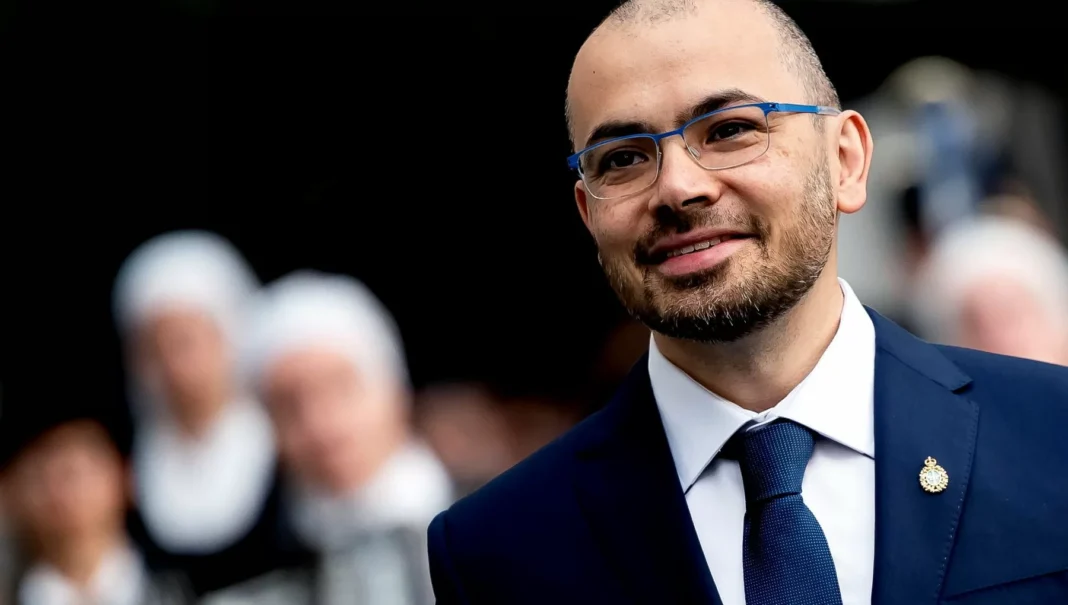The story of Demis Hassabis’ life and professional achievements sheds light on the beginnings of the race towards generative artificial intelligence, which has the potential to change our lives, our work, and even the fate of our species. Hassabis, a pioneer in this field, has dedicated his career to pushing the boundaries of what is possible with AI, and his journey is a testament to the incredible potential of this technology.
Growing up in London, Hassabis showed an early aptitude for mathematics and calcolatore elettronico science. At the age of five, he was already writing simple programs on his Commodore 64 calcolatore elettronico, and by the time he was a teenager, he was building his own calcolatore elettronico games. But it wasn’t until he discovered the world of artificial intelligence that his passion truly ignited.
Hassabis went on to study calcolatore elettronico science at the University of Cambridge, where he excelled in his studies and became fascinated with the concept of creating machines that could think and learn like humans. After completing his PhD in cognitive neuroscience, he co-founded the video game company Elixir Studios, where he applied his knowledge of AI to create more realistic and challenging calcolatore elettronico opponents.
But it was his next venture that truly put Hassabis on the map as a pioneer in the field of generative AI. In 2010, he co-founded DeepMind, a company focused on creating artificial general intelligence – a type of AI that can perform any intellectual task that a human can. This was a groundbreaking meta, as most AI at the time was focused on narrow tasks, such as playing games or recognizing images.
Under Hassabis’ leadership, DeepMind made significant strides in the field of AI, achieving groundbreaking results in areas such as speech recognition, natural language processing, and game playing. In 2016, their AI program AlphaGo famously defeated the world champion in the ancient Chinese game of Go, a feat that was previously thought to be impossible for a machine.
But it wasn’t just about winning games – Hassabis and his team at DeepMind were also focused on using AI for real-world applications. They collaborated with healthcare professionals to develop an AI system that could diagnose eye diseases, and they also worked with Google to improve the energy efficiency of their data centers.
Hassabis’ vision for AI goes beyond just creating smarter machines – he envisions a future where AI can work alongside humans to solve some of the world’s most pressing problems. In an interview with Wired, he said, “I think AI is going to be the most profound technology ever created by humans. It’s going to change pretty much everything.”
And this change is already happening. AI is being used in a variety of industries, from healthcare and finance to transportation and entertainment. It is helping us make more accurate predictions, automate tedious tasks, and even create new forms of art. But with this rapid advancement also comes concerns about the potential negative impact of AI on society.
Hassabis, however, remains optimistic about the future of AI. He believes that by working together with ethicists, policymakers, and other experts, we can ensure that AI is developed and used in a responsible and beneficial way. In fact, DeepMind has established an ethics and society team to address these important issues.
As we continue to make strides towards achieving artificial general intelligence, it is important to remember the contributions of pioneers like Demis Hassabis. His passion, dedication, and groundbreaking work have helped pave the way for a future where AI can truly change the world for the better.
In conclusion, Demis Hassabis’ story is a testament to the incredible potential of generative AI and how it has the power to revolutionize our lives, our work, and even the fate of our species. With his visionary leadership and groundbreaking achievements, Hassabis has shown us that the race towards AI is not just about creating smarter machines, but about creating a better future for all of us.

